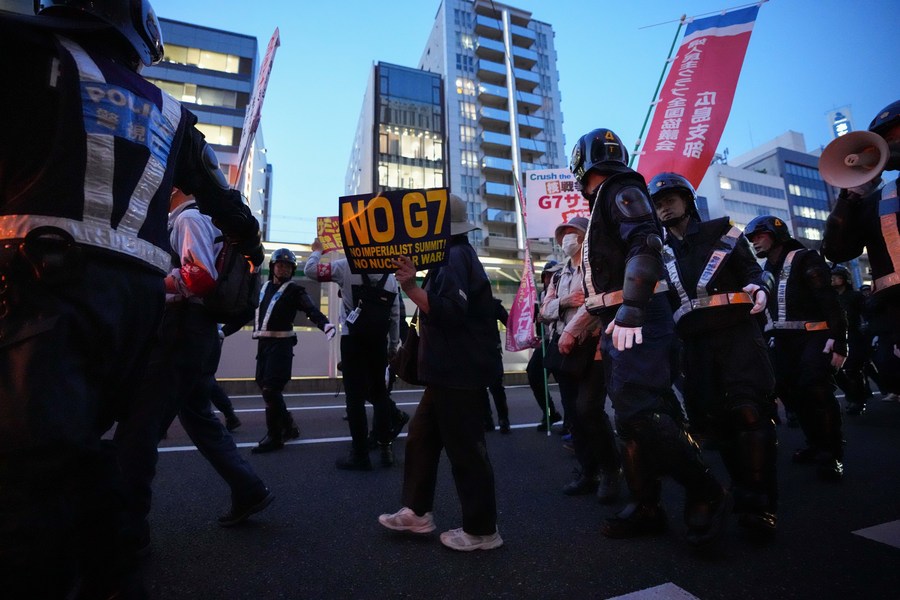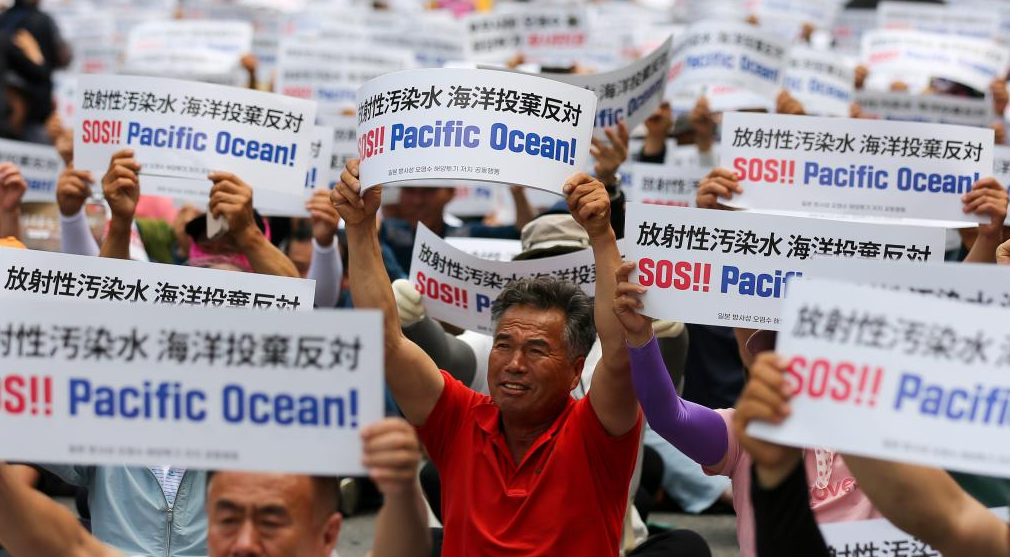U.S. policy toward China unpopular with increasing calls for reflection from West

The U.S. Capitol building is shrouded in haze, as smoke from wildfires in Canada brings unhealthy air quality to the East Coast, in Washington, D.C., the United States, on June 7, 2023. (Photo by Aaron Schwartz/Xinhua)
America's allies come to realize that being a blind follower of its anti-China policies will turn them into political pawns, harming their own interests and dividing the world further.
BEIJING, June 18 (Xinhua) -- Regarding China as a strategic competitor in recent years, the United States has taken a raft of measures to contain China.
As the harm of such measures becomes increasingly prominent, there has been mounting criticism against the United States' hegemonic actions both within the country and from its allies.
U.S. BUSINESSES DESIRE COOPERATION
During his China visit in late May, Tesla's founder Elon Musk said the United States and China share intertwined and inseparable interests, adding that Tesla opposes decoupling and is willing to continue to expand business in China and share the country's development opportunities.
On the day Musk arrived in China, Tesla's stock price soared, which showed the U.S. market's optimism about opportunities in China.
"China is still a major focus for U.S. businesses, as evidenced by the recent stream of senior executives visiting for the first time since before the pandemic, including Apple CEO Tim Cook, JPMorgan CEO Jamie Dimon and Tesla CEO Elon Musk," NBC News reported.
Many American economists and scholars have expressed concern over Washington's obsession on suppressing China.

A container ship of China's COSCO Shipping docks at a container terminal of the Port of Long Beach in California, the United States, Aug. 20, 2021. (Xinhua/Gao Shan)
"Over the years, U.S. businesses have really recognized the dual benefits of investing in China," Stephen Roach, a senior fellow at Yale University, told NPR news.
"They get more efficient production, offshore production solutions from their offshoring, and they also get the opportunity to tap the world's richest and deepest market. But those advantages are now slipping away as we focus on security," Roach said.
In the view of David Dodwell, CEO of the trade policy and international relations consultancy Strategic Access, the U.S. policy "is making an enemy of a country that has none of the malign motivations being hallucinated in Washington. It is weakening the global economy when it is already dangerously weak."
ALLIES CAUTION AGAINST BLIND FOLLOWING
America's allies come to realize that being a blind follower of its anti-China policies will turn them into political pawns, harming their own interests and dividing the world further.

Protesters rally in a protest against the upcoming Group of Seven (G7) summit, in Hiroshima, Japan, May 17, 2023. (Xinhua/Zhang Xiaoyu)
During an interview on his flight back from China in April, French President Emmanuel Macron said it was not the continent's business "getting caught up in crises that are not ours," and "the worst thing would be to think that we Europeans must become followers on this topic (of Taiwan) and adapt to the American rhythm or a Chinese overreaction." The French president also said that Paris respects and follows the one-China policy.
In a March statement, former Australian Prime Minister Paul Keating elaborated that the current government is falling into a major mistake "with an American sword to rattle at the neighborhood to impress upon it the United States' esteemed view of its untrammelled destiny."
Keating has been strongly critical of AUKUS since it was announced in September 2021 by the former Morrison government, saying it undermined Australian sovereignty and risked provoking conflict with China.
There is similar sentiment in the business sector. Decoupling from China would be "unthinkable for almost all of German industry," said Ola Kaellenius, chairman of the Board of Management of Mercedes-Benz Group AG.
"The major players in the global economy, Europe, the U.S. and China, are so closely intertwined that decoupling from China makes no sense," Kaellenius told the German newspaper Bild am Sonntag in April.
"AMERICA WILL BECOME ISOLATED"
Recently, the United States has been strengthening its military alliances targeting China in the Asia-Pacific region, intensifying regional tensions and causing concerns among the American public.
"There needs to be a meaningful diplomatic track to cool temperatures between the two nations," Forbes said in a recent article.
"U.S. fears are not only irrational -- they're a potential self-fulfilling prophecy," warned an opinion piece published by Foreign Policy. "An enormous ocean separates them (China and the United States) ... Coexistence is not merely desirable; it is unavoidable."
In a recent interview with Bloomberg, former U.S. Secretary of State Henry Kissinger said that the current debate in the United States has shifted to an "extreme theory of America first which is applied to both sides (of the polarized country) but in such a way that it focuses too much on America and not on global issues."
For him, the result is clear: "America will become isolated" if it keeps looking inwards. "The current trajectory of (China-U.S.) relations must be altered," he said.
Photos
Related Stories
- Power companies inject 215 mln dollars into U.S. politics via dark money groups: The Guardian
- China, U.S. should bring bilateral relations gradually to track of stable growth: FM
- U.S. school reinforces inequalities between Black children, their peers: VOX
- China, U.S. should bring bilateral relations gradually to track of stable growth: FM
- U.S. needs to rethink its traffic enforcement: article
- U.S. "Asian NATO" plan doomed to failure: Iranian paper
Copyright © 2023 People's Daily Online. All Rights Reserved.









